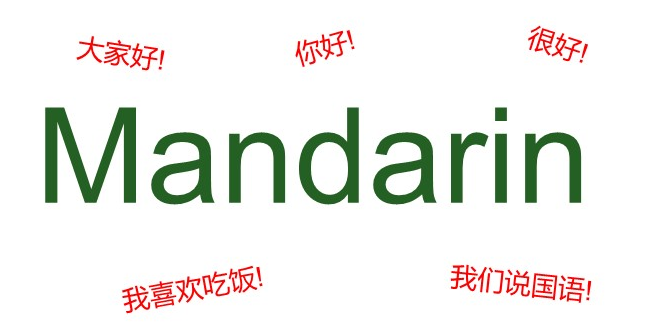Learn Mandarin Online
And at our Centers in Mulund and Airoli
Mandarin is the most widely spoken language in the world with over 1.4 billion speakers. It is also the second most used language on the internet.
There are two types of written form – Simplified and Traditional. Simplified Chinese was established in 1949 when communist regime in mainland China took power.
Simplified form is officially used in the People’s Republic of China, Singapore and Malaysia.
On the other hand, Republic of China i.e. Taiwan, Hong Kong, Macau, overseas Chinese communities tend to use traditional characters.

WHY LEARN MANDARIN?
The Most Widely Spoken Language With Over 1.4 Billion Speakers
“ The limits of my language are the limits of my world.”
– Chinese Proverb
1. Population advantage
China is the most populous nation on earth, boasting over 1.4 billion people. The Standard Mandarin or Putonghua is the world most widely spoken native language. One in every five people speaks Chinese.
If you want to do business in these countries then it would be beneficial to converse in their language. While no official data seems to exist, it is generally assumed that a significant majority are monolingual.
2. Competitiveness
Knowledge of the Chinese language will enable people especially Indians to compete competitively and effectively and efficiently in the global economy of the future.
3. Partnership with India
China is, and remains one of India’s largest and most reliable partners. The trade and collaboration volume between the two countries are growing at a very fast rate.
4. Business Opportunity
There are more and more businesses not only having their products made in Chinese factories but also marketing towards the Chinese market.
High ranking American, European and other Asian companies like Coca-Cola, Apple, Ford, Motorola, Mitsubishi, Volkswagen, LG. etc. are doing business in China. Interacting and translating in the Chinese language will enable lots of Indians to get more of these jobs at a favorable salary.
5. Global Dominion
China is actively involved in world affairs as an influential player and will continue to do so for many decades to come.
As China now has opened up to the West, there are opportunities for employment in all areas. Proficiency in Mandarin will ensure that you are a front runner in your profession and will also prove to be the key to endless opportunities in the professional field.
6. Chinese Culture and Heritage
The China culture is a unique, colourful and multi-layered that has evolved over last 5,000 years. Not only is China one of the oldest and richest cultures on the planet – it’s also an exciting, vibrant modern country. It is worthwhile studying this intimately through the language.
.
MANDARIN COURSE DETAILS
Everything You Need To Know About Before Starting
A1:
Can understand and use familiar, everyday expressions and very simple sentences, which relate to the satisfying of concrete needs. Can introduce him/herself and others as well as ask others about themselves – e.g. where they live, who they know and what they own – and can respond to questions of this nature. Can communicate in a simple manner if the person they are speaking to speaks slowly and clearly and is willing to help.
A2:
Can understand sentences and commonly used expressions associated with topics directly related to his/her direct circumstances (e.g. personal information or information about his/her family, shopping, work, immediate surroundings). Can make him/herself understood in simple, routine situations dealing with a simple and direct exchange of information on familiar and common topics. Can describe his/her background and education, immediate surroundings and other things associated with immediate needs in a simple way.
B1:
Can understand and use familiar, everyday expressions and very simple sentences, which relate to the satisfying of concrete needs. Can introduce him/herself and others as well as ask others about themselves – e.g. where they live, who they know and what they own – and can respond to questions of this nature. Can communicate in a simple manner if the person they are speaking to speaks slowly and clearly and is willing to help.
B2:
Can understand sentences and commonly used expressions associated with topics directly related to his/her direct circumstances (e.g. personal information or information about his/her family, shopping, work, immediate surroundings). Can make him/herself understood in simple, routine situations dealing with a simple and direct exchange of information on familiar and common topics. Can describe his/her background and education, immediate surroundings and other things associated with immediate needs in a simple way.
C1:
Can understand and use familiar, everyday expressions and very simple sentences, which relate to the satisfying of concrete needs. Can introduce him/herself and others as well as ask others about themselves – e.g. where they live, who they know and what they own – and can respond to questions of this nature. Can communicate in a simple manner if the person they are speaking to speaks slowly and clearly and is willing to help.
C2:
Can understand sentences and commonly used expressions associated with topics directly related to his/her direct circumstances (e.g. personal information or information about his/her family, shopping, work, immediate surroundings). Can make him/herself understood in simple, routine situations dealing with a simple and direct exchange of information on familiar and common topics. Can describe his/her background and education, immediate surroundings and other things associated with immediate needs in a simple way.

